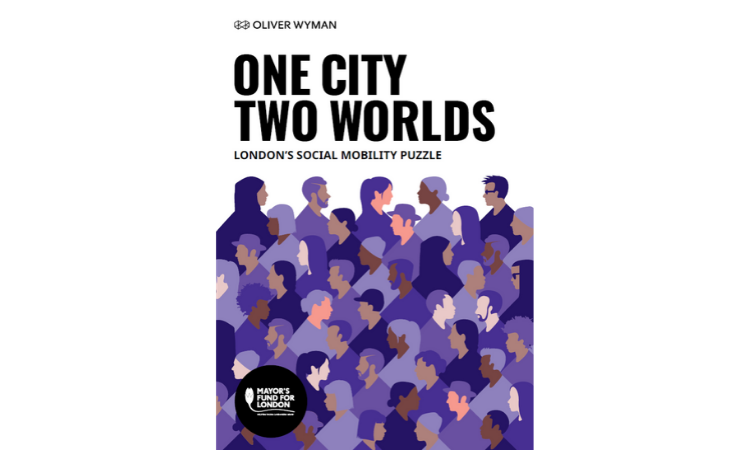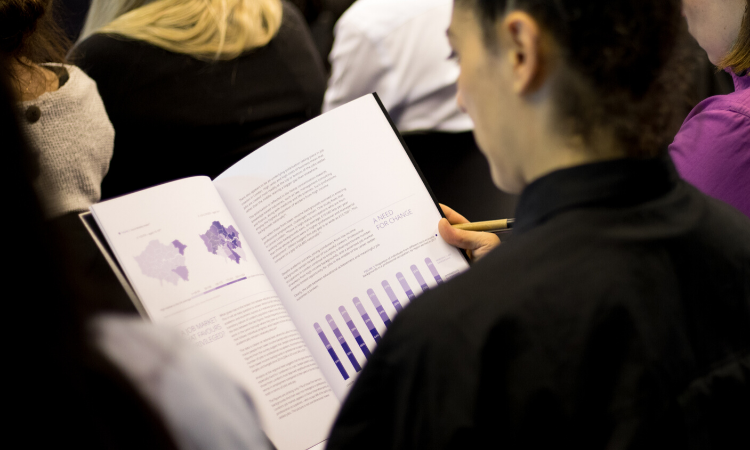
Social mobility in London is stagnant
Our latest report finds that many young Londoners from low income backgrounds are unable to make the best of the opportunities this city has to offer. Structural inequalities, a fragmented support system, and limited data have hindered young Londoners for far too long.
This is unacceptable.
We teamed up with leading global management consulting firm, Oliver Wyman, to embark on a major interview-based study and conduct a new review of multiple data-sets to find out why the path to social mobility in London is broken and what can be done to salvage it.
The resulting report, One City, Two Worlds, tells us that despite academic success, those from London’s most deprived neighbourhoods do relatively worse in employment compared to their peers in the rest of England and that more than a quarter of young people from low income backgrounds believe that “people like me” do not succeed in life.
But we’re not done yet; we’ve come up with a set of recommendations to tackle this issue and need your to help us take these forward. Read the report. Get involved.

Impetus for the research came from concerns that national reports and indices have over reported the social mobility picture in London, with regional data masking deep levels of poverty and inequality. In addition, the national narrative has under-recognised London’s uniquely competitive labour market, preventing young people from low income backgrounds from accessing higher status careers.
Existing research has shown:
- 700,000 children live in relative poverty in London, more than the entire population of Sheffield;
- London boroughs’ spending power per person has fallen 37% in real terms by 2020, compared to 29% across the rest of England, with almost half of London’s youth centres having closed;
- Even when those from lower income backgrounds succeed in entering professional employment, they earn, on average, £10,660 less per year than those whose parents are in higher professional jobs – compared to a gap of £6,800 nationally.
One City, Two Worlds proposes a system overhaul, and calls for a better co-ordinated approach to create a ‘cradle to career’ pathway. The report also calls for corporate London to place socio-economic diversity at the core of their workforce strategies.

“The lack of social capital within under-represented communities means that young people are always several steps behind their more affluent counterparts. The power within our society is held by those from wealthier backgrounds, who not only earn more money but also control the levers that shape our social order. Without adequate visual representation, we cannot expect to move the needle towards creating an inclusive society.”
Tahira Bakhtiari, Youth Board Member, Mayor’s Fund for London
“Where you come from should have no bearing on what you achieve, yet there are too many young Londoners struggling to access the wealth of opportunities our city offers. The Mayor and I are committed to making London a more equal city and continue to work with businesses, local authorities and civil society groups to dismantle the barriers that prevent young people in our capital reaching their full potential.”
Debbie Weekes-Bernard, Deputy Mayor for Social Integration, Social Mobility and Community Engagement
